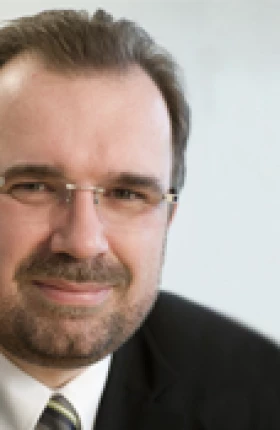Samsung Engineering was founded in 1970 as the first South Korean engineering-design firm for domestic projects but quickly began a global expansionary campaign. Today, South Korea accounts for less than 25 percent of Samsung Engineering’s $8.4 billion in revenues—and the rest of Asia accounts for even less. Since 2000, the Middle East has been Samsung Engineering’s primary market—which is not surprising because oil, gas, and petrochemical projects are the company’s primary business.
John Wong, a senior partner and managing director at The Boston Consulting Group, sat down in 2012 with Samsung Engineering’s then-CEO, Ki-Seok Park. At the time, Park told us that dividing the world into mature markets and emerging markets is less meaningful than understanding the nuances of each market. Projects in the Middle East tend to be negotiated at fixed prices. This practice plays to Samsung’s strengths at pricing and managing risks. In the U.S. market, by contrast, cost-plus-fee contracts allow contractors to put more risks on their customers. “In all the markets that we serve, our success has been based on our unique understanding of local conditions, our initiative, and our management capability,” Park said in the interview.
Samsung Engineering often competes against larger Western competitors, such as Technip and Saipem, in the engineering, procurement, and construction (EPC) market. While recognizing their strengths and capabilities, Park said that Samsung brings its own advantages. “The Korean ‘bbali, bbali’ culture of speed and efficiency helps us deliver large projects under deadline, and Samsung’s high standards and skilled resources allow us to manage complex projects with minimal rework and error,” he explained.
Edited excerpts of the interview follow.
How global is Samsung Engineering?
In a recent ranking of global contractors by the Engineering News-Record, we were ranked fifteenth based on overseas sales, compared with ranking thirty-fourth in 2011. More than 75 percent of our revenues were generated overseas in 2011. We are currently working on projects in 20 countries. About 20 percent of our workforce is from outside Korea, coming from 34 different countries.
We have been especially active in emerging markets undergoing industrialization and urbanization. Southeast Asia, India, and Mexico all have rich natural resources and are enjoying rapid economic development. We have also aggressively expanded in the Middle East, which has the ability—due to high oil prices—to finance large infrastructure and energy projects. To continue the growth momentum, we are trying to expand into other promising markets rich in resources such as CIS [Commonwealth of Independent States] nations, South America, and Africa.
We talk about a two-speed world: slow growth in many mature markets, with strong growth in emerging markets. How does this apply to Samsung Engineering?
For our company, it makes more sense to create differentiated strategies for our clients, products, and businesses based on regional and national characteristics rather than to divide the world into high-growth and mature markets.
In the Middle East, fixed-price contracts are common, and we have been successful winning and managing business in that environment. We know how to price the projects and manage the risks. We broke into the market with a small project in Saudi Arabia in 2001. Our success has come through customer trust, world-class performance, and localization, and it has resulted in close to $12 billion in project awards there. We have been able to advance into other nations by building on our accomplishments in Saudi Arabia, such as the United Arab Emirates, Bahrain, Iraq, and Algeria.
In the U.S., most projects are governed by cost-plus-fee contracts. Many of our natural advantages—a flexible workforce and strength in pricing—are less important there, and we do not have long relationships with contractors. Consequently, we have needed to establish new business practices and business models. Since labor costs are so high in the U.S. we need to ensure that we have efficient labor-management practices and long-term partnerships with contractors.
The boom in oil-sand and shale-gas projects has created new opportunities in North America that we are trying to pursue. We created Samsung Engineering America in 2008 for the purpose of strengthening our technical knowledge and expanding our EPC capability.
In all the markets that we serve, our success has been based on our unique understanding of local conditions, our initiative, and our management capability. The two-speed world is more of a peripheral issue for us.
What is your strategic focus in each of these markets?
We have a different focus in each market. The Middle East presents a large number of projects, but competition is fierce. We have tried to strengthen our relationship with existing customers there in order to win repeat business. In Saudi Arabia, we have actively taken part in Saudization, the national policy of job creation in the private sector. Finally, we are diversifying into areas that aren’t focused on hydrocarbon, such as power generation and water treatment.
South America is a challenging but promising market. Domestic-content laws there require the use of local equipment and supplies. This makes bidding and managing costs more challenging since we know we can source components more economically outside of South America. We assume all competitors face the same issue. Nevertheless, we have focused on resource-rich countries, such as Brazil and Bolivia, and we recently won an assignment for a fertilizer plant in Bolivia.
In the CIS nations, we have used a hub-and-spoke approach. This means that we maintain a main office in one country and try to serve all the surrounding countries from that hub. For CIS, our main office is in Moscow.
Sub-Saharan Africa has tremendous resources and growth potential but is lacking both financial capacity and business experience. Despite these challenges, we are strategically investing our time and resources to position ourselves for future opportunities in the region.
Do you require different business models and organizational structures in different markets? Have you taken a different approach in the Middle East than, say, the U.S.?
From one market to the next, our external organizational structures and operations look similar. However, there are internal differences in business practices and human resources because our clients have different business styles and contracting systems.
As a leader, how much time do you spend overseas? How much time do you spend in mature markets like the U.S. and Europe, and how much time do you spend in the Middle East or Latin America?
When I was in charge of sales, I spent more than half the year overseas, mostly in emerging markets such as Southeast Asia, Mexico, and the Middle East. Since becoming CEO, I travel about three months of the year to key markets such as the Middle East, North Africa, and South America. I visit advanced markets, including the U.S., twice a year.
Do you try and maintain a common culture across the globe, or do you encourage local variation? What aspects of culture are nonnegotiable, and what can be modified? How do you balance the dueling needs for integration and localization?
The Samsung Group follows the same values around the world. Our group values—people, excellence, change, integrity, and co-prosperity—are universal and help drive a common vision and code of conduct.
We also aim to be a local company within each market we serve, respecting cultural or religious differences and diversity. We adjust our working styles, for example, to accommodate daily prayers. We call this balance between integration and localization glocalization.
Samsung Engineering also has its own distinct values. One is continuous challenge, which is moving on to achieve targets with passion and persistence. A second is global citizenship, which is realizing global standard management by understanding and utilizing diversity and securing global capabilities. A third is creative convergence, which is creating new future values through insight, communication, and cooperation.
Talent is a big global issue these days. What are the challenges in Korea? Do the same issues exist in the more mature markets? How do you encourage talent mobility between the fast- and slow-growing markets?
We are not immune from the challenges of securing and managing talented workers. In our industry, talent is one of the key ways that companies compete. It is especially important to secure experienced workers in new markets and new business areas. In particular, the U.S. petrochemical market is undergoing structural changes as shale gas exploration and investment take off. This is creating labor shortages throughout the business.
To reduce the gap in talent between advanced and emerging markets and overcome cultural differences, our engineers in Korea are conducting projects with engineers from the U.S. and India. We are planning to continuously expand labor exchanges between our main engineering hubs in these three locations.
The days of exporting what works in developed markets to new markets are over. What can Samsung Engineering teach leading Western companies about operating in emerging and developed markets? What are the strengths of Samsung Engineering in terms of talent, ideas, and product?
Fluor, Technip, and Saipem and other companies from mature markets possess vast experience, technology, business capability, and stable business portfolios. We try to emulate their best practices.
At the same time, as a relatively young company, Samsung Engineering has acquired some key competitive differences. First, we try to have a thorough customer-oriented mindset. We keep our promises with customers and deal with them on the basis of diligence, sincerity, responsibility, endless innovation, and passion. Second, we are more likely to accept and manage risks in the management of projects. This has helped us earn the trust of customers and solidified our reputation.
Third, we have expanded upstream into offshore, gas-oil separation plants, liquefied natural gas, power generation, mining and metallurgy, and front-end engineering design. In October we formed a joint venture with Amec, a leading engineering firm with extensive experience in offshore projects. We intend to strengthen our core competence in this growing market. We are working hard to establish a more stable business structure throughout the areas focused on and beyond hydrocarbon. This makes us stronger and more competitive across markets.
What are the core strengths of Korean companies in the global EPC market? Do you view Chinese and Indian players as threats? What is your strategy to compete against them?
Starting in the 1970s, Korean companies served as design and construction subcontractors for leading companies. In the 1980s, they began transforming themselves into comprehensive EPC companies with a global mindset. In the 2000s, our capabilities caught up with the leading European, Japanese, and U.S. companies.
Korea has outstanding human resources. We have a strong zeal for education. About 500,000 Korean students graduate from college every year, and they represent the foundation of growth for Korean companies.
The Korean “bbali, bbali” culture of speed and efficiency helps us deliver large projects under deadline, and Samsung’s high standards and skilled resources allow us to manage complex projects with minimal rework and error. When we make a commitment to our clients, we keep it. We have a can-do spirit.
We deploy a creative and holistic way of thinking about projects. We try to flexibly manage and allocate both human and physical resources from the start to the end of a project to maximize our performance. Our approach is contrary to that of Western companies, which tend to value functional specialties.
Currently, Chinese and Indian companies are not strong competitors for large-scale projects in the global EPC market, especially for the sophisticated energy segment. That will change over the mid- to long-term, however.
As a leader, how do you make connections with your people in markets very different from your home market?
We regularly hold events where foreign executives and staff and Korean staff can mingle together. Whenever I go on a business trip abroad, I visit global offices and sites and directly communicate through a meeting. I also utilize IT infrastructure such as video conferencing, video chats, and a CEO blog to communicate virtually. Most importantly, as a CEO, you need to be honest, demonstrate that you understand others’ points of view, and try to reach consensus.
How do you manage the expanding universe of stakeholders, especially in markets in which state support for local companies is strong?
Our localization strategy takes into account the role of stakeholders and their needs and expectations. For example, one of the main concerns for Saudi Arabia is its rising unemployment rate among young adults. To address this issue, we recently opened a $100 million engineering complex, the Samsung Naffora Techno Valley, which will benefit the country by creating jobs and transferring skills and knowledge specifically to Saudi engineers.





